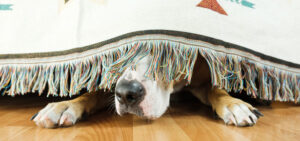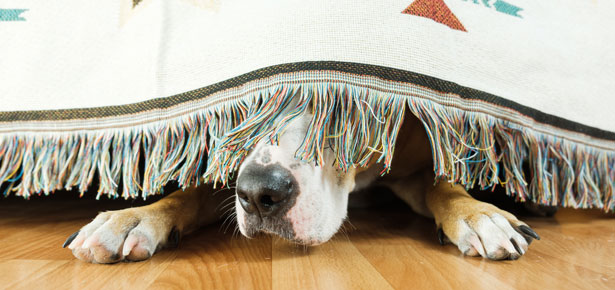Post-COVID yielded a lot of fearful, anxious dogs with some extraordinary behavior issues as their owners returned to the office.
Two years later, I am still working with many anxious dogs and the one thing they have in common are adult, first-time owners who have no real experience with dogs in any capacity.
This is not a slag on first-time owners. Many adults have determined that a pet is less of a risk than a child and certainly less expensive. I just wish they would consult a professional *first*, before dipping their toes into companion animal ownership.
Honestly, the worst advice someone can get is from another person with limited experience. “I’ve had dogs my whole life” is not an endorsement of actual knowledge, and people like me fed more dogs this morning than most people will own in a lifetime.
Taking advice from someone who stands to profit from your experience is even worse.
Breeders, ‘rescues’, and shelters, all want to sell you a dog. They will tell you ANYTHING to get you to part with your money, including lying about provenance. Shelters and rescues like their ‘stories’. It enables them to ladle on the guilt and manipulate well-meaning folks into getting a dog that may not be suitable for them.
Although there is no genetic test for fear-related issues in anxious dogs, seeing the prospect in its own environment, and the ability to temperament test are all within the scope of every prospective owner, regardless of where they expect to acquire their next dog from.
Humans being humans, and choices being choices, we tend to select badly. We are shamed into making poor choices because of peer pressure, or whatever driving force compels humans to do questionable things as they step into their personal unknowns.
Guilt is a huge motivator. That sad little urchin from the streets of San Paulo actually had a life before she was netted, sedated, surgically altered and shipped stateside. I guarantee you, she never needed humans to survive. Millions of years of evolution did that for her.
She left behind an existence she enjoyed, a culture that understood her, and a lifestyle that intimately approximated the same one her ancestors have enacted for millennia.
People want to quibble about diseases and early death, but that dog had no knowledge of its future, nor an appreciation of its white saviors, even as it landed on our shores, with our pride and our virtue, our constant jabbering and our lofty, beatific expectations. We tend to create more problems than we solve when we extract an animal from the only life it has ever known, and expect it to adapt willingly, happily to one of our making.
It’s not just the foreign dogs dumped on our shores (it’s not like we don’t already have enough of or own, thanks) but the refuse of a system that churns out living, breathing creatures for a retail market, damn the torpedoes, full steam ahead, who cares what that temperament is gonna be like an a year or so. Dogs are commodities, like tires and eyebrow tweezers. They go bad, you get another one…. including owners who have been guilted into thinking that the dog needs protected more than it needs an education.
To feel sorry for it.
To nurture that fear and anxiety.
To medicate instead of liberate.
An anxious dog is that way for one of three reasons. It is genetically predisposed, it has been allowed to self-reinforce for fearful behavior and believes it is a successful tactic for its survival, or a combination of the two.
I have yet to meet an anxious dog unimproved by good training. Although profoundly anxious dogs may never achieve the rollicking disposition of the average retriever, offering them the opportunity to learn how to overcome their fear can absolutely help them cope with stressors.
It doesn’t really take much more than understanding what truly motivates dogs and how willing they are to achieve comfort – whether that comfort looks like the ability to escape or avoid something they fear, or the desire to access something they *need*, more than they fear the obstacle they perceive as in their path.
The Independence Day holiday is always the time when the phone rings the loudest and the longest, because dogs have been allowed to escape their confinement; door bolting, fence jumping, collar slipping, or having to endure the yearly reenactment of the Battle of the Bulge on the Fourth of July from under the bed or shaking miserably in the bathtub.
Fear is natural. Too much fear is unhealthy, but fear drives a lot of behavior, in humans as well as dogs.
Humans are afraid of what they perceive as ‘the wrong thing’ and tend to overreact based on limited data. They have ‘heard’ that a technique or piece of equipment is ‘bad’ so any reference to it is colored by that unqualified information and the possibility of help gets rejected.
We all know it’s far easier to live with an issue than it is to face it and make the effort to fix it. Procrastination is a key element to strengthening behavior. It’s easy to put off what should be done today. What the *dog* learns, is since the behavior goes unchallenged, the new strategy can be stored successfully for future use. Persistence is the key. Do that enough times, and the behavior becomes difficult to eliminate.
Interesting that the same things that strengthen a behavior can be used to weaken it. It takes so very little to help a dog learn to cope with stressors. It just takes effort.
It isn’t fair to force a dog to live that way. The other side of the “my dog doesn’t like…” nonsense is the “My dog is afraid of…” bullshit. It’s crippling.
I find great satisfaction working with anxious dogs. Helping the *real* dog emerge from the weight of profound anxiety is intensely gratifying. If you have such a dog, they deserve the opportunity to feel freedom from that emotional turmoil, and you don’t need drugs to achieve it.


